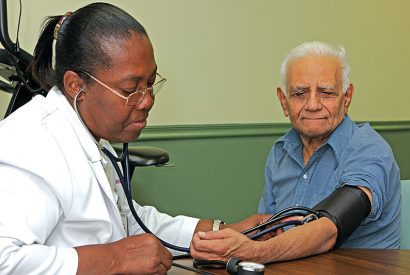Washington, D.C. – Bread for the World today voiced its opposition to the Senate’s health care legislation, the Better Care Reconciliation Act of 2017 (BCRA). Bread for the World believes this bill would increase hunger and poverty in the United States.
“The Senate version is no better than the House-passed American Health Care Act (AHCA),” said Rev. David Beckmann, president of Bread for the World. “Rolling back the Medicaid expansion at a slower rate still means that millions of vulnerable Americans will lose their health care coverage. Without health insurance, people must often choose between putting food on the table and receiving the medical care they need.”
The BCRA would end the Medicaid expansion and enact deeper, long-term cuts to the program. Medicaid currently insures about 74 million Americans.
“Any senator who supports this bill will be voting to take away health insurance from the elderly, people with disabilities, and children,” Beckmann said. “If senators are truly interested in making our health care system ‘better,’ they would draft a bill that ensures all Americans have the health care coverage they need. Clearly, the senators need to go back to the drawing board.”



